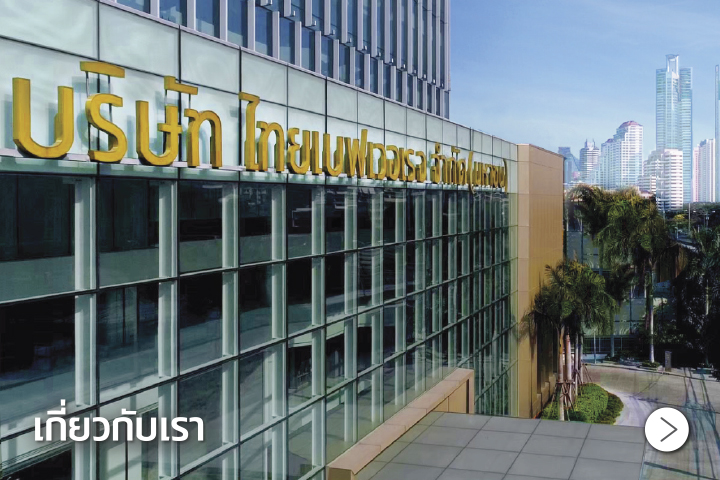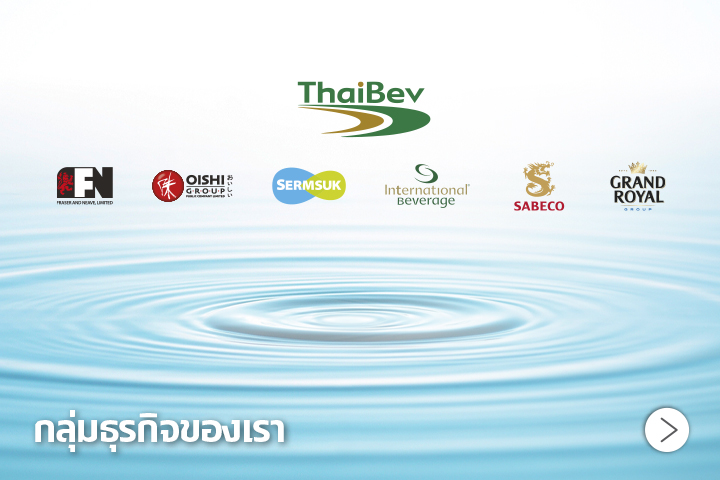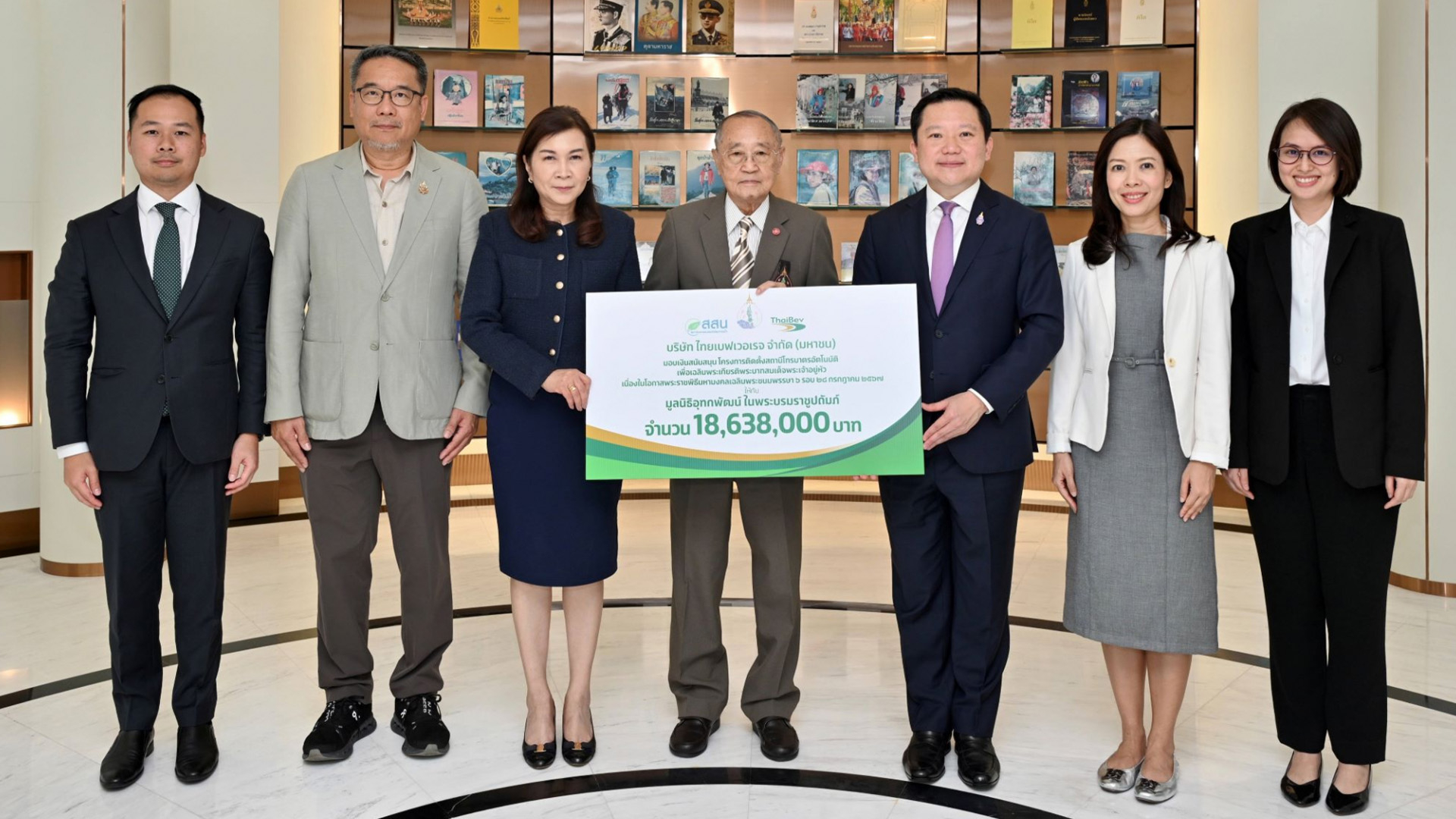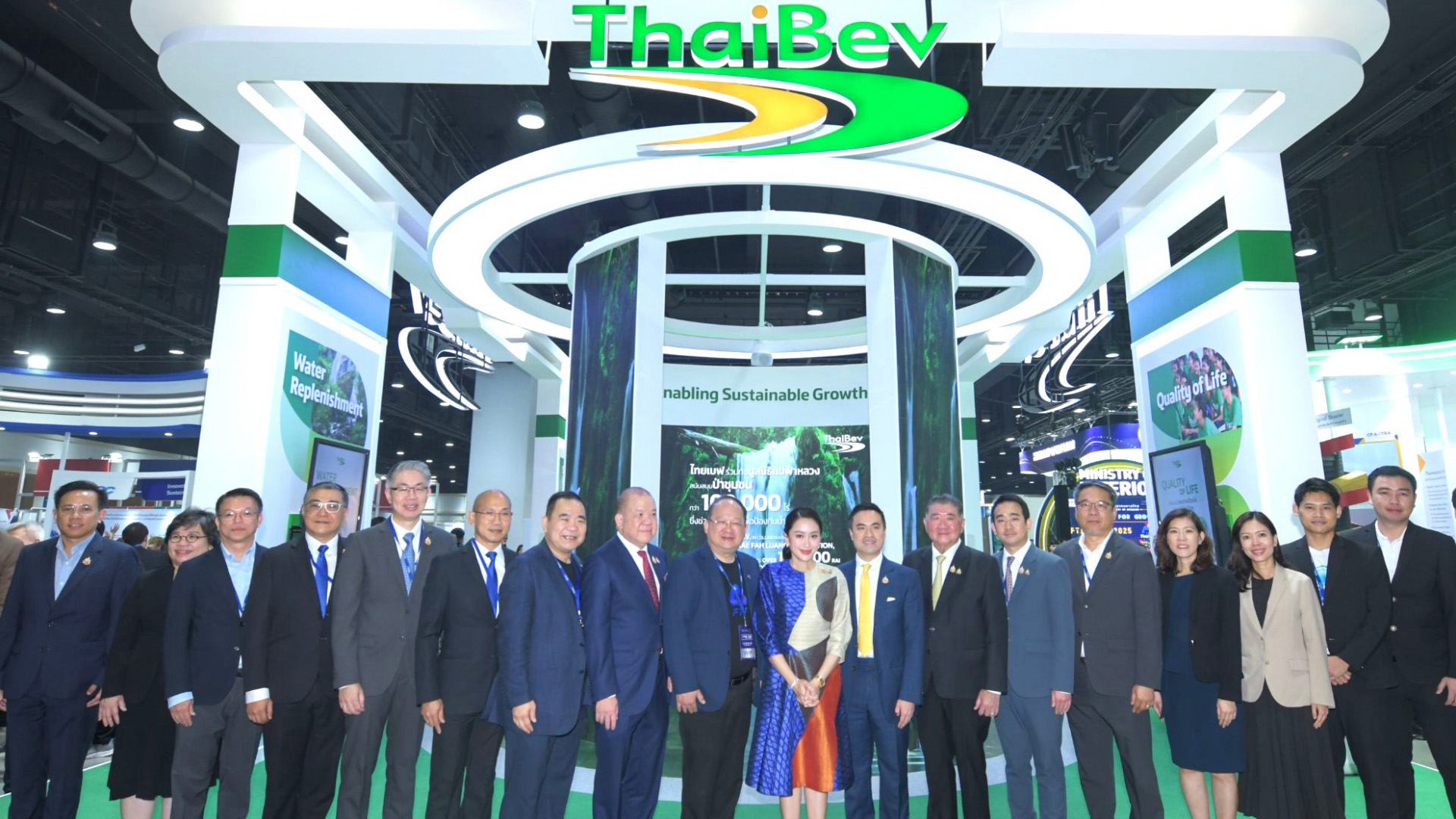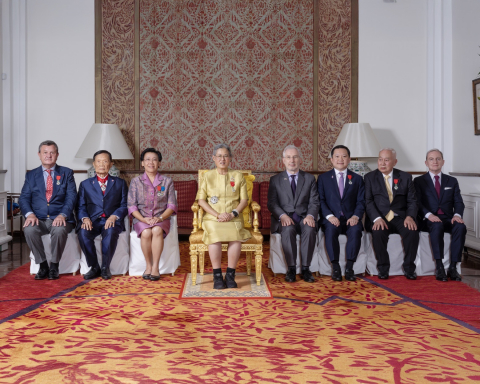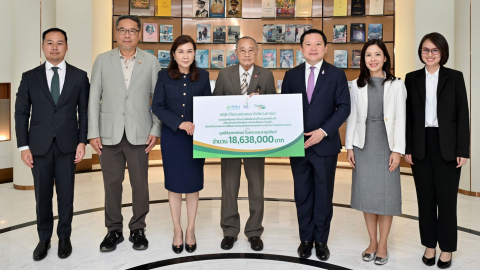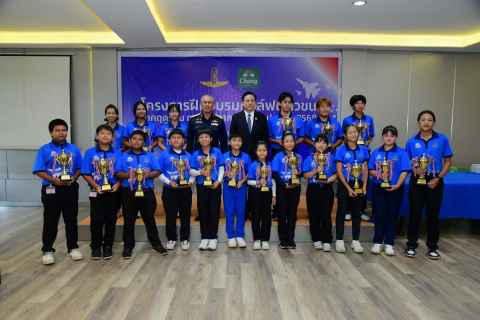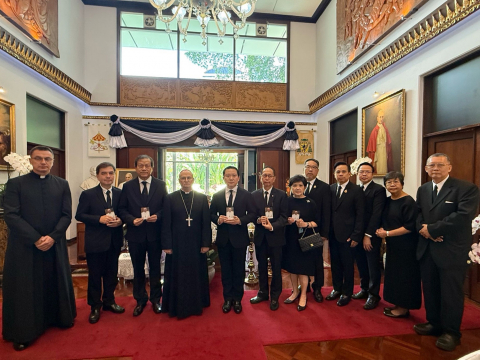30
โรงกลั่นและโรงงานผลิตสุรา
30
โรงงานผลิตเบียร์
31
โรงงานผลิต
เครื่องดื่มไม่มีแอลกอฮอล์
ไทยเบฟ สนับสนุนการติดตั้งสถานีโทรมาตรอัตโนมัติ ๗๒ สถานี เพื่อเฉลิมพระเกียรติพระบาทสมเด็จพระเจ้าอยู่หัว เนื่องในโอกาสพระราชพิธีมหามงคลเฉลิมพระชนมพรรษา ๖ รอบ ๒๘ กรกฎาคม ๒๕๖๗
บริษัท ไทยเบฟเวอเรจ จำกัด (มหาชน) สนับสนุนการติดตั้งสถานีโทรมาตรอัตโนมัติ ๗๒ สถานี ให้กับ มูลนิธิอุทกพัฒน์ ในพระบรมราชูปถัมภ์ และสถาบันสารสนเทศทรัพยากรน้ำ (องค์การมหาชน) (สสน.)
ไทยเบฟ ร่วมสนับสนุนนิทรรศการ “รัตนแห่งจุฬา ฯ” เฉลิมพระเกียรติสมเด็จพระกนิษฐาธิราชเจ้า กรมสมเด็จพระเทพรัตนราชสุดา ฯ สยามบรมราชกุมารี ในโอกาสทรงเจริญพระชนมายุ 70 พรรษา จากพรรณไม้ สู่นวัตกรรม เพื่อความยั่งยืน
บริษัท ไทยเบฟเวอเรจ จำกัด (มหาชน) สนับสนุนนิทรรศการเฉลิมพระเกียรติ “รัตนแห่งจุฬา ฯ” จากพรรณไม้ สู่นวัตกรรม เพื่อความยั่งยืน โดยได้อัญเชิญภาพถ่ายฝีพระหัตถ์เกี่ยวกับดอกไม้มาจัดแสดงเพื่อเผยแพร่ให้ประชาชนทั่วไปได้ชื่นชมพระอัจฉริยภาพด้านการถ่ายภาพ
ไทยเบฟ เตรียมจัดใหญ่ Water Festival 2025 สืบสาน “มรดกภูมิปัญญาไทยทางวัฒนธรรม” ของโลก ชูแนวคิด “มหาสงกรานต์ มหาสนุก” พร้อมกัน 4 ภาค ทั่วประเทศ 12-15 เมษายนนี้
บริษัท ไทยเบฟเวอเรจ จำกัด (มหาชน) จัดงาน “Water Festival เทศกาลวิถีน้ำ …วิถีไทย” อย่างต่อเนื่องเป็นปีที่ 10 โดยปีนี้จัดขึ้นภายใต้แนวคิด “มหาสงกรานต์ มหาสนุก” ระหว่างวันที่ 12 – 15 เมษายน 2568 นี้
ไทยเบฟ ผลักดันอุตสาหกรรมไทยชูสุดยอดการบริหารจัดการน้ำอย่างยั่งยืน และเบื้องหลังนวัตกรรมเครื่องดื่มครบวงจร ในงาน “FTI EXPO 2025”
ไทยเบฟ ผลักดันอุตสาหกรรมไทยชูสุดยอดการบริหารจัดการน้ำอย่างยั่งยืน และเบื้องหลังนวัตกรรมเครื่องดื่มครบวงจร ในงาน “FTI EXPO 2025”
ไทยเบฟ ยกระดับคุณภาพการศึกษา พัฒนาโมเดล 46 โรงเรียนคุณภาพ จังหวัดบุรีรัมย์
ไทยเบฟ ยกระดับคุณภาพการศึกษา พัฒนาโมเดล 46 โรงเรียนคุณภาพ จังหวัดบุรีรัมย์

















